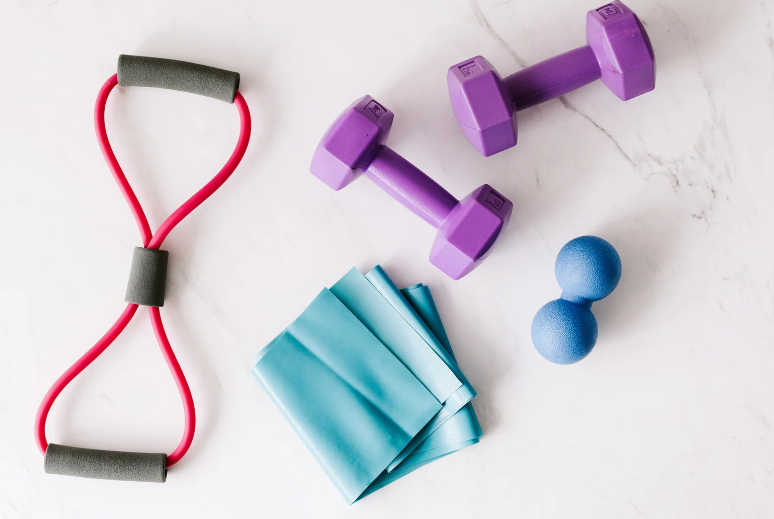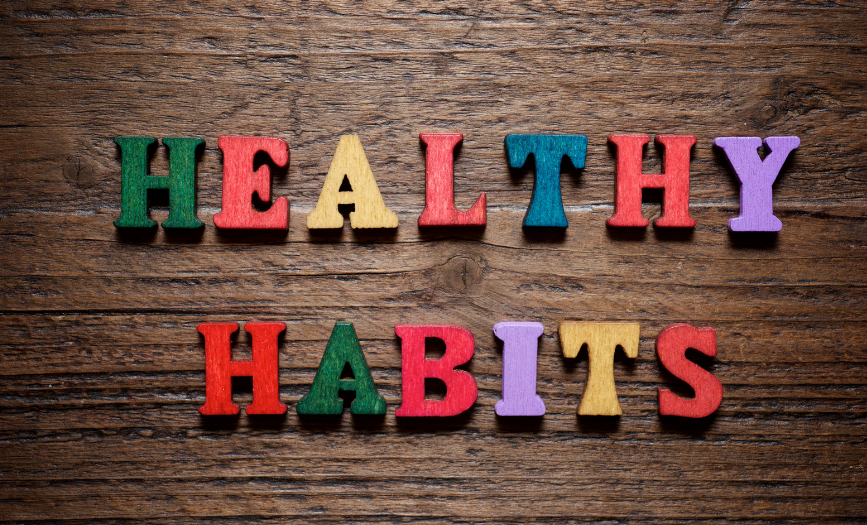You thought losing weight would be difficult. After all, as the saying goes: You didn’t gain it overnight, so you can’t be expected to lose it overnight, right? And for most people, it is hard—only roughly 20 percent of people are successful in meeting and maintaining an intentional weight loss when using the criteria of "losing at least 10 percent of one’s initial body weight and keeping the weight off for at least one year." This still leaves 80 percent who fall short.
Much to your surprise, though, your weight-loss journey has been relatively smooth sailing. At first, it seemed too good to be true. The pounds fell away quickly and easily those first few weeks. Your clothes started to fit a little looser, and before long you found yourself shopping for smaller sizes. Most of your friends and family expressed amazement and admiration at your transformation.
Even so, your speedy
Is It Bad to Lose Weight Quickly?
Becky Hand, a registered dietitian nutritionist, notes that one to two pounds lost weekly (or roughly one percent of one’s weight) is the accepted guideline for traditional weight-loss programs. For someone who weighs 300 pounds, for example, one percent would equal three pounds lost weekly.Hand notes that weight loss may be slightly quicker than this guideline during the first four to six weeks, but will then usually slow down. When nutritional needs are being met, Hand is not overly concerned when her clients lose at a slightly faster rate, but when the eating plan is poor, it could have dangerous results.
While some people
"Ironically, one of the more common side effects of quick weight-loss plans is weight regain. This is because most of the [initial] weight loss
As Dr.
However, Hand points out that "
Warning Signs to Watch Out For
1. You feel like you couldn't sustain your current caloric intake or exercise regime for a long period of time.
If you’re carefully counting every calorie to ensure that you stay below a certain limit, or if your extended gym sessions are keeping you from the activities and people you love, it may be time to give yourself a bit of a break.
During weight loss, Hand states that "general fitness guidelines encourage a person to build up to about 30 to 60 minutes of planned physical activity of at least moderate intensity, five to six days a week."
"If it's unrealistic for you to do for the rest of your life, odds are that you've gone a little overboard and need to reel it in if you want to continue to see results over time and not burn yourself out," Velez explains.
2. You feel hungry, light-headed, dizzy, irritable or lethargic throughout the day
If you find yourself growing groggy or trying in vain to ignore a grumbling belly between meals, Velez says these are likely signs that you're not fueling your body with enough energy (in the form of calories) and need to increase your daily intake. Hand further explains that the general guidelines state that women should not go below 1,200 calories daily, while males should not go below 1,500. "Be sure to make those calories count with nutrient-packed foods to meet your body’s needs," she adds.
Erica Larson, certified holistic health coach, agrees: "Weight loss should be maintainable, so if you are severely fatigued and cannot get through normal daily functions or need more than the maximum amount of recommended eight to nine hours of sleep, your body might be malnourished."
3. You’re losing hair, or it feels thin or brittle.
Your hair needs vitamins and proteins to stay healthy, strong and shiny. If you’ve noticed increased hair loss in the shower or your hairbrush, or if the thickness or texture of your hair has changed, fast weight loss could be the culprit. If you are meeting your nutritional needs, hair changes shouldn’t be a real concern. Hair will typically return to a normal state as the body adjusts to the weight loss.
However, if you are not meeting basic protein and nutrient needs, hair loss and changes could be very serious. Christopher Shuff, a registered dietitian and weight-loss specialist with Love and Fire Nutrition, says this is a serious warning sign that you're deficient in protein, vitamins or minerals. "A main risk of rapid weight loss is the high chance of not getting enough nutrients from the small amount of food and calories being eaten," he says.
4. You find yourself thinking about food—a lot.
Although you’re rigidly controlling your physical eating, you may find that your mind has other ideas. Catherine Silver, a licensed clinical social worker specializing in the treatment of eating disorders, often sees this manifest in her clients as they rapidly lose weight.
"People who are losing weight too quickly might find themselves always thinking about—or even dreaming about—food," says Silver. "This is because, from an evolutionary standpoint, our mind is trying to remind us that our body is hungry, even if we don’t feel physically hungry. It's trying to say, ‘Hey, don't forget to eat!’"
5. You're experiencing frequent headaches.
According to the National Headache Foundation, some people experience what are called hunger headaches. Usually striking right before mealtimes, they are often triggered by skipping meals or severely limiting your caloric intake, which can cause low blood sugar or muscle tension.
6. Your hormones are out of whack.
As Velez points out, rapid weight loss sometimes triggers hormonal changes that could lead to acne, mood swings, depression, sleep disturbances and other undesirable symptoms.
For women, another potential side effect of accelerated weight loss is irregular or missed menstrual cycles, also known as amenorrhea. "The menstrual cycle is based on hormones, sleep cycles and eating cycles," says Larson. "When the body is thrown out of whack, deficient in vitamins or under too much stress from calorie restriction or over-exercising, the result is often interrupted periods."
7. You’re not meeting your protein needs.
Skinny doesn’t always equate to strong. If you’ve dropped a lot of weight in a short amount of time, that might also mean a loss of lean muscle tissue. With an increase in activity, it is important to ensure that you're delivering your body proper protein portions throughout the day.
According to Hand, "During weight loss, females need at least 60 grams of protein daily and males need at least 75 grams." A rapid weight loss due to a protein-deficient eating plan decreases muscle mass, decreases your strength, causes skin, nail and hair problems and increases the risk of bone fractures.
A quick loss of lean muscle mass could also increase the chances of having excess or loose skin after weight loss, Velez points out. That’s not to say that the muscle mass will prevent excess skin altogether, but it could help to minimize the problem.
8. You have nausea, constipation, stomach pain or other digestive issues.
It would seem that cutting out junk food and excess calories would make for a happier, healthier stomach, but some people who lose weight at an accelerated pace find that they suffer from queasiness, cramping or other tummy troubles. Hand notes that some quick-fix diets are low in fiber and can bring about dehydration, which can result in constipation as well as an unhealthy change in the probiotics found in your intestines.
Additionally, according to the National Institute of Diabetes and Digestive and Kidney Diseases, rapid weight loss can prevent the gallbladder from emptying properly or may cause more cholesterol to be released by the liver. This can increase the risk of developing gallstones, which can cause upper abdominal pain.
How to Slow Down Weight Loss
If you do notice any of the above warning signs, it may be time to try some slow-down strategies.Talk to your doctor.
If you suspect that your weight loss might be faster than typical, it’s always best to speak with your doctor to ensure that there are no health issues contributing to the fast-paced pound shedding. Hand suggests seeing your primary care provider with every 15 to 20 pounds lost. This is especially important when using medications for conditions such as diabetes, high blood pressure and others.
Keep a food diary.
If you’re not already, Velez suggests tracking everything you eat and drink for a week to calculate your total daily caloric and nutrient intake. "Once you figure out where your average daily caloric intake is sitting, try increasing your calories slowly, maybe by 50 to 100 calories for the first week depending on how quickly you were losing weight before, then seeing how your weight loss looks after the increase," she suggests. Hand stresses the importance of selecting foods that not only increase calories, but also the nutrients that may be lacking in your food tracking report.
Consider cutting back a bit on exercise.
Exercise has a number of benefits, but if you find you're losing weight too quickly, take a look at how much time you're spending in the gym, how long your cardio sessions are and how many calories you're roughly burning during each session. "If you're spending more than 90 minutes of planned exercise daily and doing excessive amounts of cardio, then you might want to scale back to something more manageable in the long run," says Velez.













